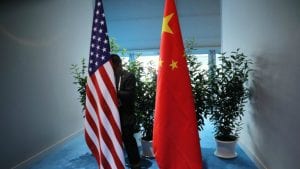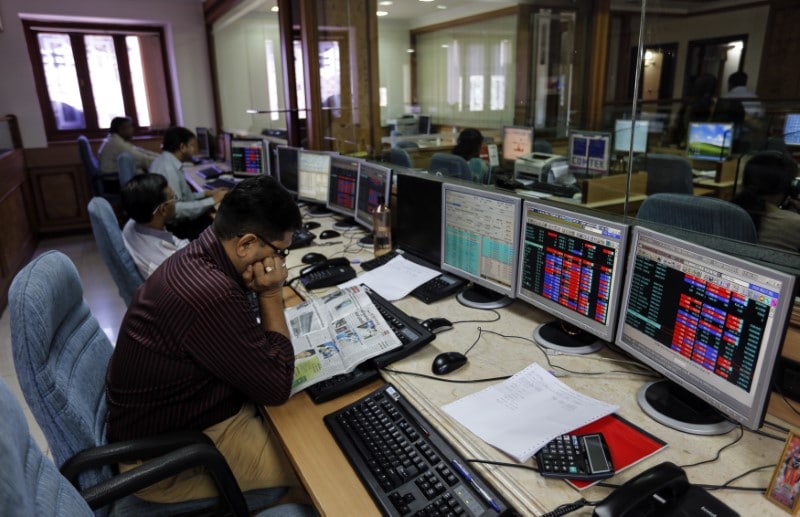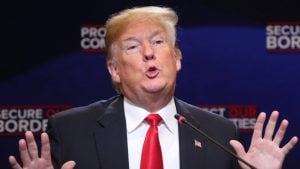What can Beijing do if China-US trade row worsens?
Summary
China and the United States sank into a deepening trade conflict that roiled financial markets Tuesday after US President Donald Trump threatened to impose tariffs on an additional $200 billion of Chinese products, prompting Beijing to accuse Washington of starting a trade war.
China and the United States sank into a deepening trade conflict that roiled financial markets Tuesday after US President Donald Trump threatened to impose tariffs on an additional $200 billion of Chinese products, prompting Beijing to accuse Washington of starting a trade war.
Trump said Monday his threat was retaliation for China’s decision to raise tariffs on $50 billion of US goods over the weekend, a move that itself was in response to additional US tariffs on Chinese products announced Friday.
The sheer size of Trump’s latest threat makes it impossible for an in-kind response from China since the value of the goods involved exceeds by $70 billion the total value of US imports to China last year, US data shows.
China could be prompted to react in other ways. Here are some possible scenarios.
More Tariffs
After threatening on Friday additional tariffs of 25 percent on $50 billion of American products, China can raise tariffs on more US goods, such as aircraft.
It could also increase the size of the tariffs on the goods that it is targeting.
But it can only go so far.
China imported $129.89 billion of US goods last year, compared with US purchases of $505.47 billion of Chinese products, according to US data. The figures differ from those provided by Chinese customs, which showed China imported $153.9 billion of US goods and the US purchased $429.8 billion of Chinese products.
Either way, even if Trump goes on to impose tariffs on $300 billion or even $400 billion of Chinese goods, Beijing could only levy duties on a total of $100-plus billion of US products.
To escalate the trade war, China would have to turn to non-tariff measures.
Business Bottlenecks
China could create costly bottlenecks for US imports.
In May, importers and industry sources told Reuters that China had intensified inspections of goods shipped from the United States, compared with more random checks in the past. The products affected ranged from pork and vehicles to fresh apples and cherries.
China could also impose new regulations on US products and companies to either limit their presence in the world’s second-largest economy or even ban them altogether.
For years, US firms such as Facebook (FB.O) and Alphabet’s Google (GOOGL.O) have long been blocked from offering their products in China.
Getting licenses to operate in certain sectors could also get more difficult.
Jacob Parker, vice president of China operations at the US-China Business Council, said China would undoubtedly begin looking at other ways to enforce action against US companies operating in the market.
“One thing that we’ve heard specifically from companies is that the Chinese government has been holding meetings with domestic private and state-owned enterprises where they talk about diversifying away from the procurement of US products and services and shifting those contracts to European, Japanese or domestic Chinese companies,” Parker said.
Reduced Chinese access for US businesses could be a boon to other foreign companies in a year when China says it will further open its door to overseas investors and firms.
“That could have an enormous impact because many of our companies operating in China have significant market share built up over decades. If that is immediately eroded, it is almost impossible to get back,” Parker said.
Deals
Chinese clearance for US deals may also become more difficult.
China has, for example, yet to approve US chipmaker Qualcomm Inc’s (QCOM.O) proposed $44 billion acquisition of NXP Semiconductors (NXPI.O), a deal that has already got a nod from eight of the nine required global regulators.
Currency Moves
China could allow its yuan currency CNY=CFXS to drift lower against the dollar, making US goods more expensive and making Chinese exports cheaper. In fact, the yuan has been falling against the greenback since mid-April, after consistent gains since January 2017.
But some economists say Chinese policymakers would be wary of letting the yuan slide sharply against the dollar. The 2015 yuan devaluation led to months of capital outflows that Chinese authorities fought to stem, a memory that is not too distant.
Treasury Pile
China could also trim its massive holdings of US Treasuries. As of March, China held $1.188 trillion of US government bonds, the highest since October 2017.
But since China holds such a huge volume of US Treasuries in its portfolios, some economists say Beijing would not want to cause its investments to plummet in value.
As such, many economists think China is more likely to turn up the heat on US firms than risk creating havoc in the markets that might burn Beijing instead.
Boycotts
US goods may also be boycotted by Chinese consumers. South Korean goods were shunned when Beijing’s ties with Seoul turned chilly last year after South Korea deployed the U.S.-made Terminal High Altitude Area Defence (THAAD) anti-missile system despite Chinese objections.
The highest profile corporate casualty was South Korea’s Lotte Group, which saw its plans for shopping complexes indefinitely suspended and nearly all of its Lotte Mart stores in China shut for much of the year over alleged fire safety issues.
Chinese tourism to the United States may also suffer as tour operators reduce US-bound offerings. Around 3 million Chinese visit the United States annually spending tens of billions of dollars.
When Tsai Ing-wen was elected Taiwan’s president in 2016, Chinese tourist numbers to the island that China views as a wayward province slumped. Though Tsai says Taiwan wants peace with China, Beijing suspects she seeks formal independence.
Travel services accounted for almost two-thirds of US services exports to China in 2015, according to the US International Trade Commission. Travel services also formed the largest category of US services exports to China.
Embargo on US Goods
An extreme Chinese response would be a trade embargo on a swathe of U.S. goods, but that would be inconsistent with China’s rhetoric and actions if Beijing initiated such a move.
Such a move would represent a massive deterioration in bilateral ties and cause an upheaval in the global trade system.
The United States imposed a trade embargo on China from 1950 to 1972.

Elon Musk forms several ‘X Holdings’ companies to fund potential Twitter buyout
3 Mins Read
Thursday’s filing dispelled some doubts, though Musk still has work to do. He and his advisers will spend the coming days vetting potential investors for the equity portion of his offer, according to people familiar with the matter









 Listen to the Article
Listen to the Article  Daily Newsletter
Daily Newsletter




















